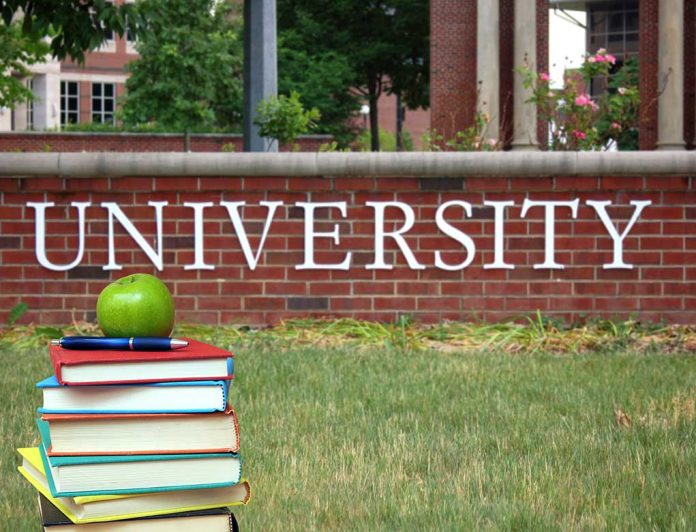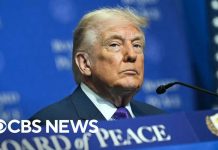
Thirty-one anti-Israel agitators were arrested at the University of Washington after torching dumpsters, vandalizing equipment worth up to $120,000, and occupying an engineering building in a chaotic protest demanding the university sever ties with Boeing.
Key Takeaways
- Protesters occupied the University of Washington’s Interdisciplinary Engineering Building, causing extensive damage to manufacturing machines valued between $35,000 and $120,000, and started fires in dumpsters.
- The activist group Students United for Palestinian Equality and Return UW (SUPER UW) has previously praised Hamas’ attack on Israel as a “heroic victory,” showing their radical anti-Israel stance.
- University President Ana Mari Cauce condemned the protest as “dangerous, violent and illegal,” as authorities arrested 31 individuals for trespassing, property destruction, and disorderly conduct.
- The Trump administration launched a review of anti-Semitic activity at the university, warning of potential funding cuts if Jewish students are not adequately protected.
- Boeing has donated over $100 million to UW, including $10 million for the engineering building that protesters targeted.
Radical Destruction and Violence on Campus
The University of Washington became a battleground when anti-Israel protesters stormed the Interdisciplinary Engineering Building, blocking entrances and causing significant property damage. The demonstration, organized by the Students United for Palestinian Equality and Return UW (SUPER UW), quickly devolved from protest to outright vandalism and destruction. Agitators damaged manufacturing equipment valued between $35,000 and $120,000 and ignited fires in dumpsters outside the building, creating dangerous conditions for students, faculty, and emergency responders.
Law enforcement officers in riot gear responded to the escalating situation after negotiations with protesters proved unsuccessful. The occupiers had barricaded entrances and prepared to confront police, demonstrating a clear intent to engage in disruptive and dangerous behavior rather than peaceful protest. University officials were forced to take decisive action as the protesters showed no signs of voluntarily ending their illegal occupation, resulting in thirty-one arrests for various charges including trespassing, property destruction, and disorderly conduct.
Campus Leadership Responds to Antisemitic Violence
University of Washington President Ana Mari Cauce took a firm stance against the destructive protest, describing it as dangerous, violent and illegal. The university administration refused to be intimidated by the protesters’ tactics, emphasizing their commitment to campus safety and opposition to antisemitism. This principled response represents a departure from the weak leadership seen at other universities where administrators have allowed similar occupations to continue unchecked, endangering Jewish students and compromising academic integrity.
“The University will not be intimidated by this sort of offensive and destructive behavior and will continue to oppose antisemitism in all its forms,” said Victor Balta, university spokesperson, emphasizing the administration’s commitment to protecting Jewish students from harassment and intimidation.
The Trump administration has initiated a review of antisemitic activity at the university, with federal agencies involved in monitoring the situation. The Task Force to Combat Anti-Semitism praised the university’s immediate response but urged further actions to ensure safety for Jewish students on campus. This federal oversight sends a clear message that taxpayer-funded institutions must protect all students from discrimination and harassment, with potential funding cuts if they fail to do so.
Radical Anti-Israel Agenda Exposed
The protest group attempted to justify their illegal actions by claiming they wanted to repurpose the engineering building. “The intent was to repurpose a building that is meant to make weapons of war to a place that serves the needs of students and workers and staff at the University of Washington,” said Noah Weight, revealing the shallow reasoning behind their destructive behavior.
More disturbing is the group’s previous characterization of the October 7 Hamas terrorist attack on Israel as a “heroic victory.” This endorsement of terrorism exposes the radical ideology driving these protests and raises serious questions about the movement’s true objectives. Despite claiming to advocate for Palestinian rights, the protesters’ tactics and rhetoric suggest a deeper hatred of Israel and Jews rather than a genuine concern for Palestinian welfare.
Regina Friedland, regional director of the Anti-Defamation League, accurately assessed the situation: This was an issue of destruction, vandalism and things that are unlawful, especially on a college campus. The illegal behavior observed at the University of Washington mirrors similar incidents across the country, suggesting a coordinated effort to disrupt campus life and intimidate universities into adopting anti-Israel policies regardless of the cost to academic freedom and campus safety.
University Defends Boeing Partnership
The protesters specifically targeted the university’s relationship with Boeing, which has donated over $100 million to the institution, including $10 million for the engineering building that was occupied. Despite the pressure tactics, the university has refused to yield to demands to divest from Boeing, recognizing the valuable educational and research opportunities this partnership provides to students. This resistance to mob demands represents a victory for rational governance over emotional intimidation.
While the university has made concessions in other areas, including scholarships for Palestinian students and ensuring inclusive study abroad programs, it has drawn a line at breaking ties with major employers and research partners based on political demands. This balanced approach demonstrates a commitment to addressing legitimate concerns while refusing to allow radical elements to dictate university policy through violence and intimidation.
The events at the University of Washington serve as a stark reminder of the growing threat of campus radicalism and the importance of strong leadership in protecting educational institutions from those who would use violence and intimidation to advance their political agendas. President Trump’s administration has made it clear that such behavior will not be tolerated at federally funded universities, sending a powerful message to administrators nationwide.









